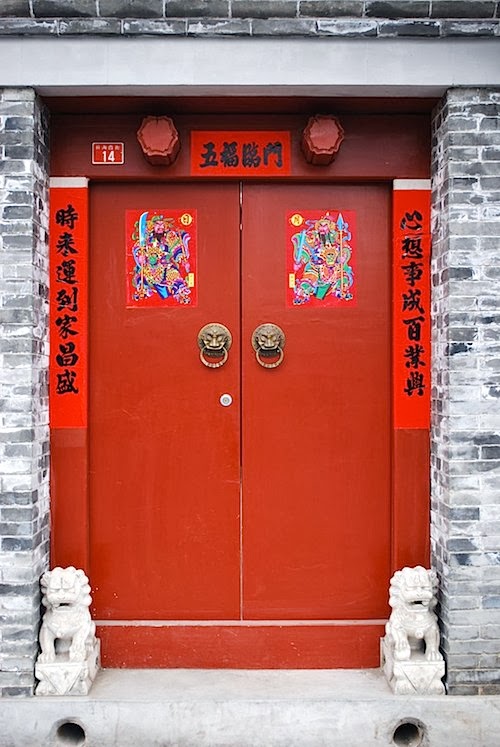Today is Chinese New Year's Eve, and here in Taiwan that's a big deal. Most schools close for three weeks (ours closes for one), extended families get together, adults give children hong baos (red envelopes with money), and good luck getting any sleep at night with all the fireworks.
I received this chart recently from a colleague and thought I'd pass it on. I think it's really interesting how many similarities there are between Passover, in the Old Testament, and Chinese New Year as it's been practiced for centuries. You could see it as one of those examples of how God has inserted hints about Himself and His Word into cultures around the world. Discussing these similarities can be a great way to bring up the gospel and get people here interested in the Bible.
I shared this chart with my 5th graders (most of whom are from Chinese families) the other day. Though I'm far from an expert on Chinese culture, the kids agreed that these points are pretty accurate. They did assure me there are some exceptions (one boy told me his family always goes out to buy cookies late in the evening on New Year's Eve because they always seem to forget they need them until then), but apparently most items on the chart do fit well with how their families celebrate Chinese New Year.
|
Chinese New Year
|
|
|
(Ex. 12:2) first month of the year
|
first month of the year
|
|
follow Lunar Calendar
|
follow Lunar Calendar
|
|
(Ex.12:4, 5) sacrifice whole lamb or kid – unblemished
|
sacrifice whole pig, chicken, fish – unblemished (now, with smaller families, pieces are acceptable)
|
|
killed twilight before Passover
|
killed New Year’s Eve
|
|
(Ex. 12:46) no bones broken
|
no bones broken
|
|
(Ex. 12:22) blood smeared on door posts and lintel
|
red paper pasted on door posts and lintel (now, lucky sayings are usually written on these banners; originally they were blank)
|
|
(Ex. 12:8) feast that night
|
feast that night
|
|
(Ex. 12:8) only eat unleavened bread week of Passover
|
only eat unleavened bread week of New Year (flat sweet cakes)
|
|
(Ex. 12:8) eat bitter herbs
|
eat bitter vegetables
|
|
(Ex. 12:12) first born struck dead if no blood was on the door
|
According to legend, children would be eaten by a beast named Nian who came to each home at night looking for someone to devour, but was afraid of the color red and would flee from it. Children wear red at this time, and many red items are displayed in homes.
|
|
(Ex. 12:15) cleanse house of all leaven (yeast) for week of Passover
|
clean house from top to bottom for the New Year
|
|
(Ex. 12:16) work ceased on first and seventh days for a holy assembly
|
work ceases for almost everyone
|
|
biggest festival of the year
|
biggest festival of the year
|
|
(Ex. 12:22, 46) none shall leave the house until morning
(Ex. 12:35) silver, gold and clothing taken/asked for from the Egyptians
|
traditionally, everyone stays home New Year’s Eve
new clothing and red envelopes of money are given at New Year’s
|
|
Ark of the Covenant carried on poles (though not at the first Passover!)
|
idols carried in parades on poles
|

2 Replies to “Similarities between Chinese New Year and Passover”
I just learned about this in my Chinese class! The similarities are amazing! I love learning about how similar the traditions and cultures around the world are. They all came from one Source.
Check out my article in http://www.bohtong.org/2012/01/origins-of-chinese-new-year-from-edmond.html?m=1